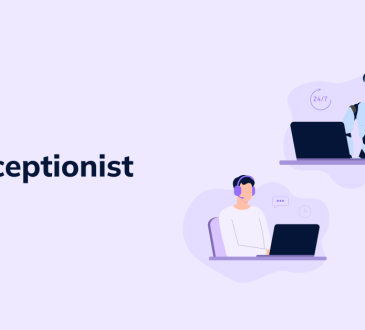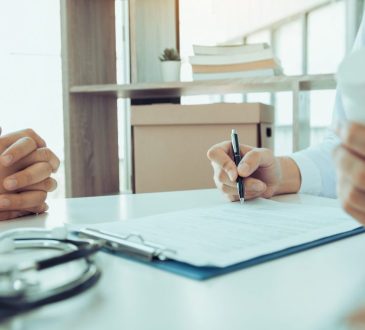
Everyone would agree that there are many lovely things to see around the world, despite the effects of climate change. The only issue is that not everyone is born with a perfect vision. Those who require prescription eyewear or eye surgery need to see an eye doctor in Singapore, which is parallel to other places worldwide.
According to the World Health Organisation (WHO), 2.2 billion people have vision impairment, whether nearsighted or farsighted. Some people develop this condition due to excessive use of devices and screen exposure to smartphones, laptops, computers, and TV.
If you think you belong to this category, below are some signs of visual impairment. Consider observing yourself to find out the answer to your concern.
- Trouble reading
- Often squint the eyes to see
- Constantly rubbing the eyes
- Have chronic eye redness
- Mild sensitivity to light
- Looking too close to the screen
If you can relate to more than one of these signs, there is a higher chance you have developed visual impairment. In that case, you better see an eye doctor in Singapore and let them access your eye condition. They will let you know what are the things you should do next.
Part I: What Not To Do Before An Eye Exam
Once you have found a reliable eye specialist in Singapore, you have to prepare. Becoming ready allows you to get the most out of your eye doctor visit. Thus, take note of the following before you go to your eye appointment.
[IMAGE RECOMMENDATION START]
1. Overexert Your Eyes
Since you will be visiting an eye doctor, your eyes should be in good condition. The only way to guarantee that is to not overset your eyesight by using mobile devices or reading books before going to bed.
2. Forget Your Glasses & Contacts
This one will only apply to those people who already have prescription eyeglasses and contact lenses. You need to bring them to provide more information about your visual impairment to your chosen eye doctor. The more information they have, the better they can assess your eye condition.
3. Drink Coffee Or Alcohol
While it is true that a cup of coffee can keep you awake, caffeine will only increase your blood pressure and may hinder your eye assessment. The same goes for alcoholic beverages, and drinking this will also dry up your eyes.
To prevent these from happening, skip a cup of coffee and do not drink alcohol at least the day before your appointment with an eye doctor in Singapore.
4. Feel Nervous Or Intimidated
Even though it is natural to feel nervous or intimidated when visiting a doctor, you should try to be calm. Otherwise, your retinal scans and corneal imaging results will be inaccurate.
Part II: What To Bring To Your Eye Exam
Besides knowing what you need to do before an eye exam, there are things you need to bring when you visit an eye specialist in Singapore for an exam. Here are some of them.
[IMAGE RECOMMENDATION START]
1. A List Of The Medications You Take
Sure, medicine can help you feel and look better in some cases, but it can also indirectly affect other parts of your body, such as your eyes. By bridging a list of your medications, including the precious ones, your eye doctor can help better assess the cause of your visual impairment.
2. Family Medical Record
Besides medications, visual impairment can also be genetic. Your great-grandparents might have this condition that has been passed down to you, their grandchildren.
3. A Companion
Whether you visit for an eye checkup of ReLEx SMILE in Singapore, you will need a companion to guide you. Having a friend or family member by your side gives you peace of mind that you will get home safely.
4. Questionnaire Cheat Sheet
Since visiting an eye doctor can be nerve-wracking to some people to the point they forget the questions they have in mind, you should consider bridging a questionnaire cheat sheet. With this, you will have something you can look at whenever you miss asking something.
5. Headphones Or Earphones
As more and more people develop visual impairments, you should expect many people to visit an eye doctor in Singapore. Instead of using your smartphone as you wait for your turn, listen to some music or an audiobook. Doing so prevents straining your eyes before your eye appointment.
Part III: What Happens During An Eye Exam
Besides filling up the form and answering questions from your eye doctor, other things happen during an eye exam. Continue reading to learn what they are.
1. Eye Muscle Movement Test
It involves checking eye movements as your eyes follow a finger or pen replaced right in front of you that is moving in different directions.
2. Cover Test
A cover test is one of the most common things that can happen during an eye exam. You can expect your eye doctor will ask you to cover one of your eyes. Doing should allow them to see if you can read the text on a poster that hangs a few feet away from you.
3. External Exam And Pupil Reactions
In this procedure, the eye specialist in Singapore will use a pen light. With a penlight, they can check the reaction of your pupils when exposed to light.
Part IV: When To Follow Up With Your Eye Doctor
After visiting an eye doctor, you will naturally do some follow-up to guarantee they were able to solve your concern. Here’s when you should do a follow-up.
1. Report Back On How Well The Eyewear Is Performing
Whether you decide to get eyeglasses or contact lenses, you should let your eye doctor know if your eyewear is working well. That means you can see everything.
2. Inform Any Side Effects Of The Eye Procedure
The eye procedures can refer to age related macular degeneration in Singapore or other eye treatment. Whatever you undergo, informing the side eyes of the eye procedure will help the eye doctor think of better solutions on how to relieve them.
In case you need to see an eye doctor in Singapore soon, go to Nova Eye Centre. The eye doctors from this clinic have years of expertise and expertise that can help you with your eyesight problems.



